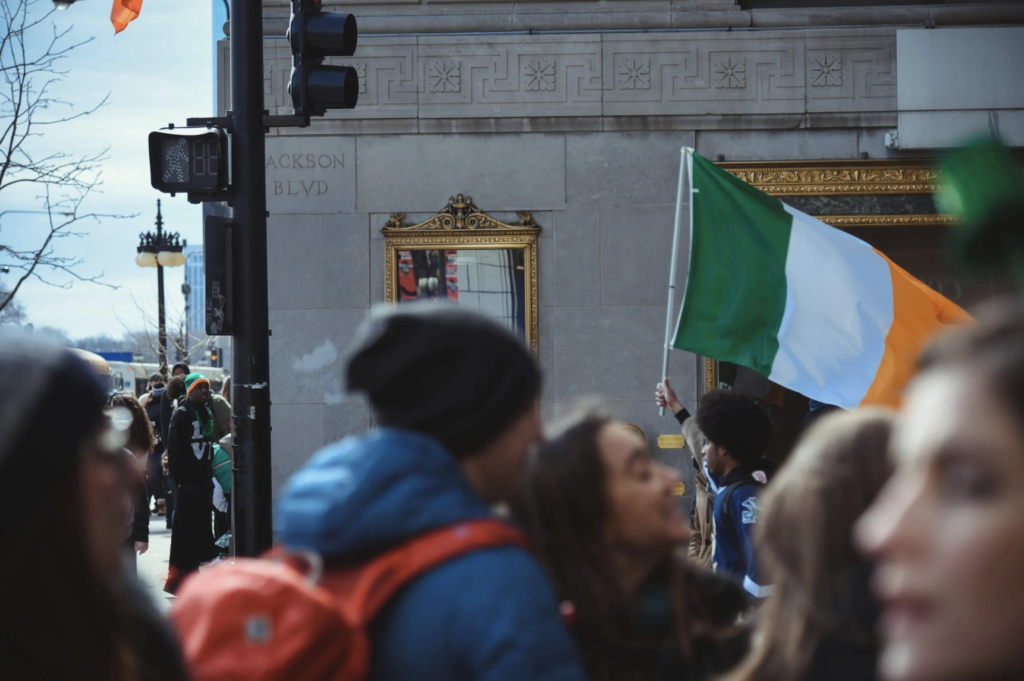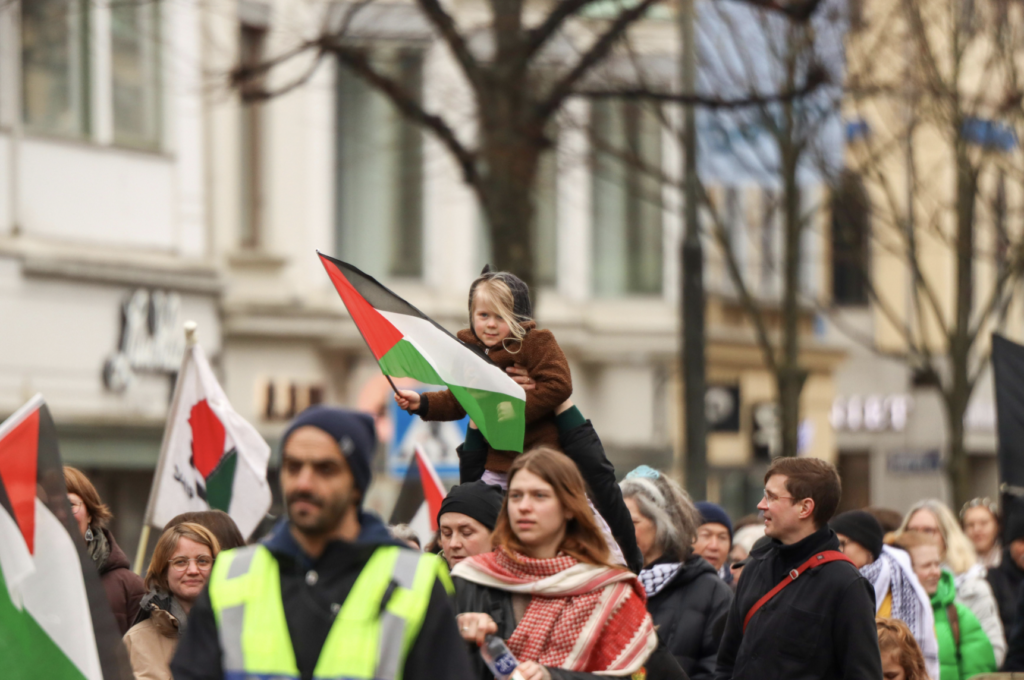The Special Relationship Between Ireland and Palestine: A History of Parallels

By: Jake Harris / Arab America Contributing Writer
In 1607, King James VI of Scotland introduced a scheme in which English and Scottish Protestant settlers would receive confiscated land in the Irish county of Ulster. The Protestant Church of Ireland was established in the region, alienating much of the native Catholic population of the county. The Plantation of Ulster became known as an origin point that led to centuries of violence between Ireland and Great Britain.
Northern Ireland today remains divided and culturally segregated between the Protestant and Catholic populations. Protestant Unionists are loyal to the U.K., while Catholic Republicans want to join the Republic. This conflict has, from time to time, erupted into violence that has forced the British military to intervene. A period of intense, violent acts during the 1970s became known as “The Troubles”.
The Partition of the British Mandate of Palestine in 1948 is not identical to the Plantation of Ulster, but the similarities are notable. The fall of the Ottoman Empire at the end of World War I led to a large power vacuum. Vast territories in the Middle East over which the victors of the war took charge. On November 2, 1917, the British Foreign Secretary would publish a document that would forever alter the history of the Palestinian people.
It was called the Balfour Declaration, a promise to use the newly occupied Palestinian territory to establish a “national home for the Jewish people”. This was a movement that had been gaining momentum decades prior. Theodor Herzl, an Austro-Hungarian lawyer founded the modern Zionist movement in the 1890’s.
Instead of gaining independence following the end of the Ottoman Empire, the Palestinians were left occupied by the British. The Arab population, who made up over 90 percent of the total population, overwhelmingly opposed the Balfour Declaration. This large influx of European Jewish migrants facilitated by the declaration was intended to create conditions in which the Jewish minority in Palestine became sizable enough to have the means to establish an eventual state.
Following the end of World War II, the Holocaust had left the surviving European Jewish population with a greater incentive to leave Europe. Much of the surviving Jewish population of Europe saw Anti-Semitism as untenable.
In 1947, the United Nations made the decision to establish an Arab State and a Jewish State over the former British Mandate. The Jewish State would make up 56 percent of the total landmass. It is important to keep in mind that the Jewish population only made up a third of the total population. The partition plan was never approved or voted on by the native population.
The Nakba, translated to “the catastrophe,” was the displacement of over 700,000 Palestinians following the partition. The decades since have been periods of war and displacement between Israel and the occupied Palestinian territories. It is the longest ongoing military occupation in the world.

The International community is divided on the conflict. Israel’s strongest military and political backers are the United States and much of Europe. In the Islamic world, recognition of Israel is limited.
Ireland represents an anomaly in Western Europe when it comes to their long-time sympathy with the Palestinian cause. In 1980, Ireland became the first member of the European Union to call for a Palestinian state. Arthur Balfour, the author of the Balfour Declaration, was already known for being opposed to Irish Independence. The religious divide in Ireland between Catholics and Protestants has similarities with tensions between Muslims and Jews in the holy land. Two competing influences living so close together with so much separation at the same time.
Ireland’s government has been particularly outspoken, condemning Benjamin Netanyahu’s invasion of Gaza. This outspoken condemnation of the war has led Israel to withdraw its embassy from Ireland entirely. Ireland has also signaled support for South Africa’s genocide case against Israel with the International Court of Justice.
Ireland’s advocacy for Palestine represents a unique partnership in global affairs. Despite the ethnic and religious differences, the Irish and the Palestinians have found common ground in shared adversity.
Want more articles like this? Sign up for our e-newsletter!
Check out our blog here!








